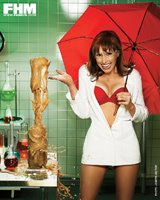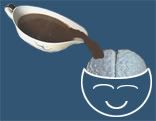
As people make the transition from high school to university they find that many aspects of their lives and mindsets change. A newly discovered freedom – or at least awareness – causes people to reassess what they know to be true or good.
Naturally, this leads to a lot of experimentation. In university such experiments may involve alcohol, drugs, sexuality, social interaction, physical activity and much, much more.
While I will neither condone nor oppose these types of experimentation, I think that people must come into their own perspective in their own way. Might I suggest one more – oft overlooked – area of experimentation? The way you learn.
This is the perfect time to experiment with your learning. Right now, we are still relatively young. Even if you are not, there is a comparatively small time investment needed in order to improve the way you learn. Think about it: if you spent one year trying out new learning techniques – honing in on what suits you the best – then even if you only live ten more years (definitely more though), you will have ten more years of improved learning. Relating this back to Monday’s post, it would be a very solid
investment.
In finding out the nature of the way you gain knowledge you can increase the speed and ease of your learning. Taking in information will become less of a chore and more of an incidental process – or better yet, it will become fun.
I would recommend reflecting on all the areas and ways in which you learn. However, to get the ball rolling, I’ll give you some examples:
In-class note takingHow do you take notes in class? Do you write down everything? A lot of professors tell me not to, but then it seems like I’m missing something from my notes when I come back to them. There’s a line between expediency and deficiency. Work to find what works or what doesn’t work for you.
As well, have you ever tried previewing the material before class or reviewing afterwards? I must say it’s really helpful. Even if you don’t fully grasp the material at the time, you’ll find that even the mention of something vaguely familiar during the lecture will boost your confidence and increase your attention span.
I have already written a post describing
Note Taking Tips (in class).
Listening to musicI’ve heard many arguments from both sides, so I’m hesitant to render a verdict for either. I’ll give you what I know, and what works for me.
Some people say that studying with music allows them to keep focused longer and keep a nice tempo going to their work. Some people say it energizes them. There was even a system, popular in the mid-1980s, called
Super Learning [new window] that taught that people learned best while listening to 60 beat-per-minute
Baroque music.
On the other hand, personally I’ve found music to be too distracting. I always want to start singing along, drumming things, etc. I’ve had a few teachers say that music can be distracting, but I usually take their advice with a grain of salt. A while ago, my friend mentioned a study done where participants learned some material with and without music. The variable was the level of musical competence of the subjects. Can you guess who learned better with or without music?
Well, I guessed wrong. Actually, the people with a higher level of musical competence actually learned more poorly when they listened to music. This makes sense, because their brain would become more active in the “musical areas” of the brain; taking focus away from the studied material. (I believe Jenna told me this, so if you are reading this and I have misquoted you or the study, go ahead and correct me.)
However, I have to mention that I have been listening to music on an off while writing this post…
Study GroupsI don’t know if I’ve mentioned this already. Many people find that study groups help them by bringing people together to teach and learn the material. I find that teaching others helps to solidify the material in my mind. When you actually have to explain something, you have to have a higher and more complex level of knowledge about the subject. Personally, I don’t like study groups because I’ve found that we get too easily distracted and start talking about the Nintendo Wii or shoes. Try it out for yourself!
And more!I have written other posts regarding the following things you should try experimenting with:
- Memorization techniques – This is probably one of the most valuable techniques you will learn.
- Environment – You may want to incorporate things that help you learn, calm you or provide motivation.
By the way, you should also try to expand this philosophy to other aspects of your life. A change in diet can change your energy levels and even the way you think. An occasional reassessment of your personal beliefs can also bring about lasting positive change in your life.
Keep your experimentation positive and you can’t go wrong. Without change there cannot be growth; growth is the key to life.
So get growing!
If you enjoyed these learning tips and motivational strategies, maybe you'll enjoy the other posts. Please bookmark this page (Ctrl-D) or check out the archive/categories to the right. Better yet, tell a friend! (Click the envelope below this.)Labels: Memory, Mindset, note taking, Pillars, Self-Awareness, Studying, Test-taking









